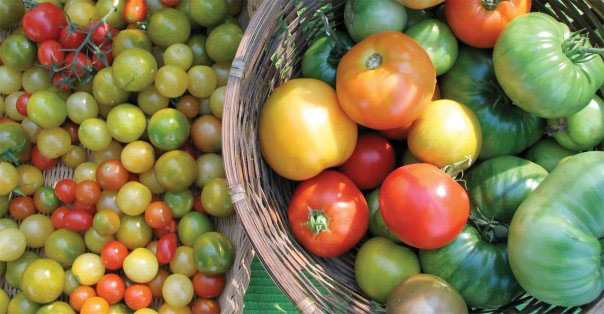Now we know more about how Chicago’s community gardens impact community health

Two recent reports produced from surveys of Chicago community gardens conducted by a research team from DePaul University and NeighborSpace are densely filled with data, tables, charts, and maps, but they fit like hand in glove with some of the presentations at our conference. The first of these, a “Harvest Study” as it is better known, conducted a broad survey over three seasons in a cross-section of Chicago’s gardens with interviews at thirty-two gardens to understand food distribution*. This study focused on gardens as assets of Chicago neighborhoods by measuring garden yields across Chicago and gathering data on where food goes and how it impacts communities. The findings are remarkable: 517,157 pounds or 259 tons of crops produced with a total value of $1,665,698.00. The nutritional yields from these gardens fill too many charts and tables to reproduce here; but you can read the report yourself by downloading the pdf at the bottom of this post.
Using census tracts, numerous mapping technologies, and surveys such as USGS, the Harvest Study showed that a large swath of Chicagoans lack food sovereignty, that is, their access to healthy, culturally appropriate food is limited. People in the areas of South Chicago, Hegewisch, South Deering, Riverdale, and West Pullman live two miles or greater from a grocery store and the near total absence of community gardens is deplorable. Food is the foundation of health, so it stands that growing food, vegetables and fruits, especially organically in our community gardens should be a right and accessible to all.
You can learn more about the results of the study and participate in a panel discussion at our upcoming conference on Saturday, March 21 in Health and Wellbeing in our Community Gardens and Beyond: Insights from Surveys and Practice.
Register for the conference here.
This workshop will be presented in discussion format and will focus on health and wellness as surveyed in community gardens. As researchers, both Professors Howard Rosing and Molly Doane will draw from their broader studies in health, well-being, and social and behavioral issues. Dr. Doriane Miller and Dr Julie Rowin will draw from their practices to give community gardeners information about personal and community health and vitality. Vincent Gomez completes the panel drawing on people-plant wellness concepts. Each will give a professional and personal take on the assertion that gardening does provide substantial health benefits.
Stay tuned! In a future newsletter, we’ll feature the latest report from DePaul’s Sustainable Food Systems Initiative, Composting in Chicago Community Gardens: A Social Analysis Report.
Download the Harvest Study here.
*Community Gardens Count: Measuring Chicago’s Harvest” (the “Harvest Study”) completed by NeighborSpace and DePaul University in 2015 (Rosing, Helphand, and DeLorenzo 2019)
